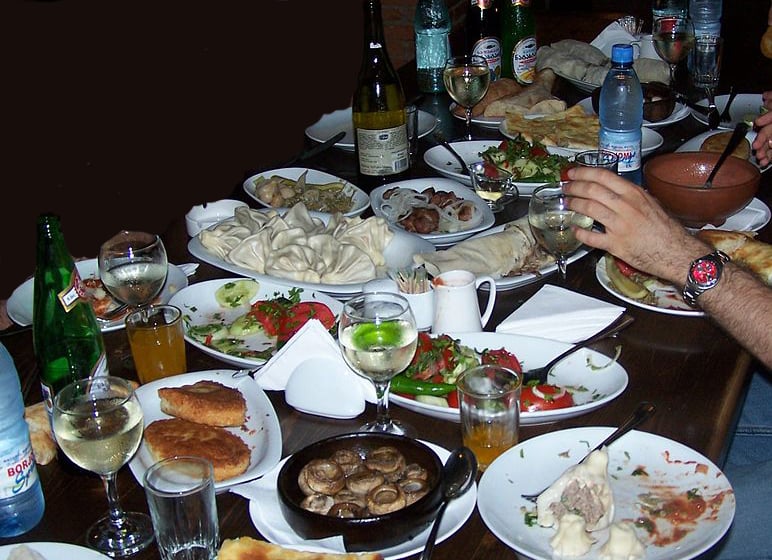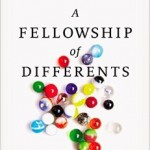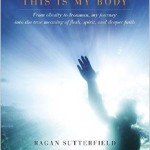 After recently re-reading Wendell Berry’s essay “Health is Membership” and being struck by its pertinency today, I asked a few friends to read the essay and write a Slow Church-related reflection on the essay. The is the second of these reflections by my friend Rachel Marie Stone. ~Chris
After recently re-reading Wendell Berry’s essay “Health is Membership” and being struck by its pertinency today, I asked a few friends to read the essay and write a Slow Church-related reflection on the essay. The is the second of these reflections by my friend Rachel Marie Stone. ~Chris
*** Read the first “Health is Membership” reflection by Brent Bill
My grandmother was born at home in New York City in 1925 – exactly the time when more and more women, especially city women, began to choose hospital over home as the place to have babies. It wasn’t that my great-grandmother was afraid of the hospital or of doctors; or that she wanted to keep the baby away from sick people who might have contaminated the hospital halls. Rather, it was that she’d heard that the hospital didn’t have very good food.
I remember great-grandma Katherine the way you remember a dream by the mid-afternoon, in random yet related pieces. When I think of her, I see first a shadowy image of her – a tall, square-shouldered woman – in a chair, which cuts quickly to a snapshot of her smiling over a plump, baby version of me in a garish vinyl seat. There’s also a 5-second clip of the two of us laughing over the black dog, Chloe, who prances and plays a piece of red blanket. And that is it. The rest of what I know is what I have been told.
She was born in the 19th century to a mother who had left Ireland in the potato famine and who then married a horse trainer that she met on the steps of the 42nd Street library. She had influenza in the pandemic of 1918; she spent a year in bed and recovered. This is a fact my grandmother will refer repeatedly to as evidence, first, that we are the inheritors of ‘hardy genes’; second, that resting in bed is the best medicine for a cold; third, that, before going to bed with a cold, you should have a hot toddy made with Christian Brothers brandy, a remedy of Irish Catholic grandmothers, never known to fail.
I want to believe all of this so much; to exist someplace where the advice to drink a hot toddy and go to bed when I’m feeling achy and congested is solid wisdom (not antiquated and vaguely irresponsible) while the advice to take some drops of echinacea and zinc and continue dragging myself through my routines is dangerous and faddish. To live in a world where a woman’s decision to give birth at home because she knows that, at home, the food will be good is sensible, not selfish.
After all, in those days, women stayed in the hospital for ten or fourteen days following the births of their babies; that’s anywhere from thirty to forty-two meals. And women who have just had a baby are hungry, and not just an ordinary kind of hungry, but the kind of hungry that sends you into the refrigerator in the middle of the night because you’re convinced that your stomach has begun to consume itself. It’s like a righteous hunger; a hunger that feels justified in demanding satisfaction NOW!
I can understand why my great-grandmother didn’t want go through that in a hospital with food of undetermined quality. I certainly wouldn’t want to – I spent just one day in the hospital after the birth of our son and had to send my husband out for some real eats. Before the birth of our second son at a birth center in Scotland, I planned to have cheese, crackers, and wine waiting in the trunk of the car. This seems a bit silly to me even now, and then my mind wanders over to look through the dream-snapshots of great-grandma Katherine, and remembers that righteous hunger, and it seems again sensible and wise that a woman should want good food when she has given birth.
There is in fact a long tradition of food being important after a birth. In the United States, especially in New England, when most births took place at home, they were attended mostly by one’s friends and neighbors, the preparation and serving of food was one of the main duties that the women in the community would step in to help with for several weeks after the birth. (We can see the vestiges of this today in the tradition of after-baby casseroles.) And when the woman was sufficiently recovered to resume her normal activities, she would, in turn, offer a “groaning table” (a reference both to the groaning of a woman in labor and to the groaning of the table itself under the weight of the food) – a feast of special, rich foods – to all those who had helped her. It was a jolly restoration of the newly-delivered woman to normal activities, a way of expressing gratitude, and a celebration. The ‘groaning table’ completed her healing.
What does it imply about our priorities if we tend to think of a woman’s need for nourishing, delicious food after childbirth as amusing, or trivial, or selfish? Doesn’t it imply, as Wendell Berry suggests, that we regard food’s truest role as simply “another unpleasant substance to inject,” its higher properties of pleasure and conviviality and connection to the soil and one another as mere garnish to the “real” work of inserting vitamins, minerals, proteins and energy into the machines of our body? In “Health as Membership,” Berry notes, as my great-grandmother did, that, in hospitals, food “tends to range from unappetizing to sickening,” and, yet, “nothing is more pleasing and heartening than a plate of nourishing, tasty, beautiful food artfully and lovingly prepared. Anything less is unhealthy, as well as a desecration.” What has a hospital tray – smelling vaguely of disinfectant and eaten alone as visitors look on with distaste – to do with a “groaning table”?
And so, perhaps, great-grandma was not batty after all in refusing to go along with the new trends by making her way to the hospital when her time came. Maybe she wasn’t selfish or epicurean or fussy for wanting to rest, at home, with good food, where her Irish mother could boil potatoes and cabbage and cook the life out of slabs of beef and make her really good cups of tea. Probably she’d never read – as I have – of the groaning table, or of ‘social childbirth.’ Certainly she’d never read Wendell Berry and his proposal of rest and food and connection to one another as the “basic principles of our art and science of healing,” as they surely are.
But I want to believe that she knew it all. And so when I have a cold, I think of her and have a hot toddy before crawling into bed.
————
 Rachel Marie Stone has contributed to Christianity Today, RELEVANT, Books and Culture, The Christian Century, Sojourners, catapult/*cino, and other publications, including her her local newspaper, The Suffolk Times. Her first book, Eat With Joy: Redeeming God’s Gift of Food will be released by InterVarsity Press in March 2013. In addition to writing, Rachel is a Presbyterian (USA) mission co-worker who is headed, with her husband and two sons, to Malawi, Africa, in November 2012. You can find her blogging on food, family, faith, birth, and justice at http://rachelmariestone.com/, or find her her on Twitter at @Rachel_M_Stone.
Rachel Marie Stone has contributed to Christianity Today, RELEVANT, Books and Culture, The Christian Century, Sojourners, catapult/*cino, and other publications, including her her local newspaper, The Suffolk Times. Her first book, Eat With Joy: Redeeming God’s Gift of Food will be released by InterVarsity Press in March 2013. In addition to writing, Rachel is a Presbyterian (USA) mission co-worker who is headed, with her husband and two sons, to Malawi, Africa, in November 2012. You can find her blogging on food, family, faith, birth, and justice at http://rachelmariestone.com/, or find her her on Twitter at @Rachel_M_Stone.
Image via Wikimedia Commons












